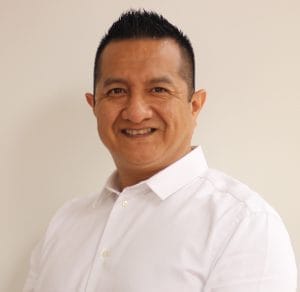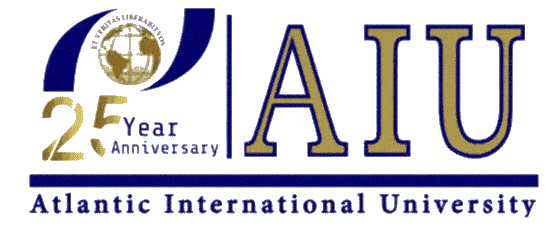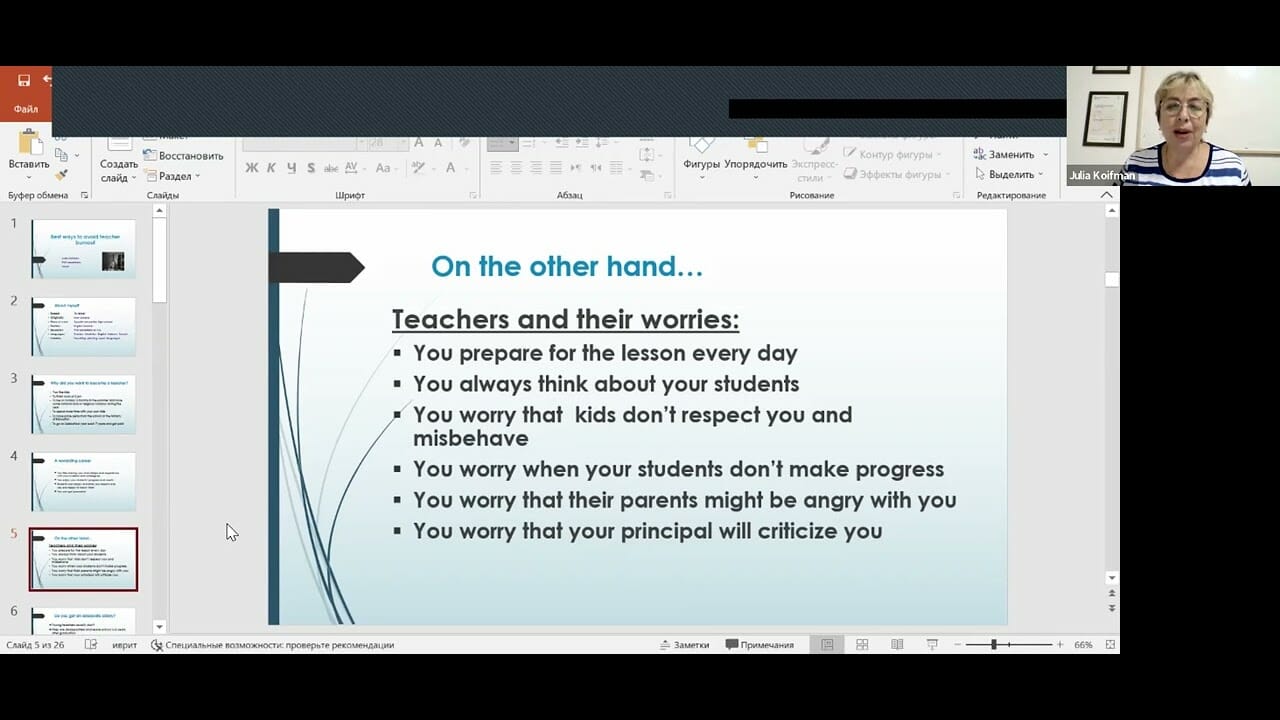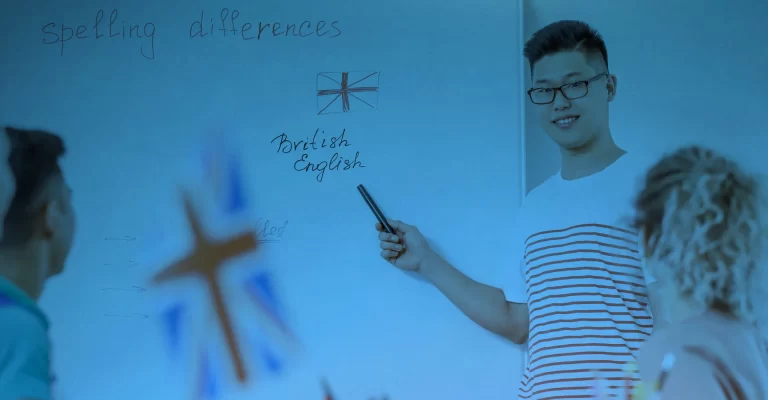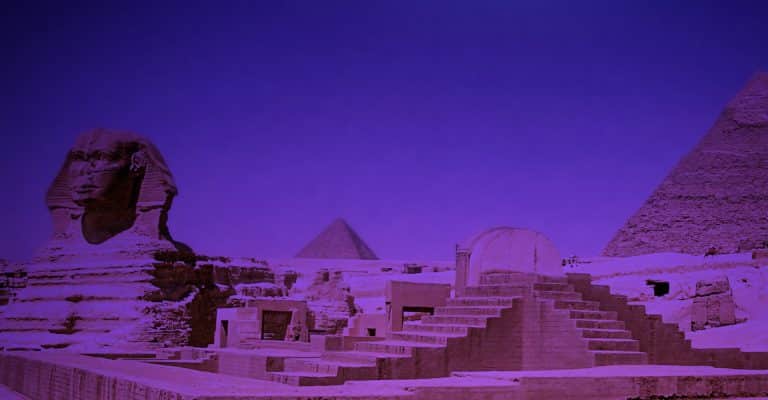Bachelor in Geology
School of Science and Engineering
Academic Freedom to Discover Your Purpose
Open Curriculum Design at Atlantic International University
Welcome to the Bachelor of Science in Geology program at AIU, where we offer an unparalleled opportunity to delve into the fascinating world of earth sciences. Our Geology undergraduate degree is designed to provide students with a comprehensive understanding of the earth’s structure, processes, and history, preparing them for exciting Geology career prospects in various fields such as environmental consulting, resource exploration, and geological research.
At AIU, we pride ourselves on our innovative approach to education, offering distance learning opportunities that allow students to pursue their academic goals while balancing other commitments. Through our commitment to andragogy education, we empower learners to take control of their education, fostering independence, critical thinking, and practical application of knowledge in geology. Join us at AIU and embark on a journey of discovery and exploration in the ever-evolving realm of earth sciences.
Contact Us Today!
We understand how busy adults do not have time to go back to school. Now, it’s possible to earn your degree in the comfort of your own home and still have time for yourself and your family. The Admissions office is here to help you, for additional information or to see if you qualify for admissions please contact us. If you are ready to apply please submit your Online Application and paste your resume and any additional comments/questions in the area provided.
Pioneer Plaza
900 Fort Street Mall 905
Honolulu, HI 96813
800-993-0066 (Toll Free in US)
808-924-9567 (Internationally)
808-947-2488 (Fax)
Core Courses & Topics: Bachelors in Geology
Important: Below is an example of the topics or areas you may develop and work on during your studies. By no means is it a complete or required list, as AIU programs do not follow a standardized curriculum. It is meant solely as a reference point and example. Want to learn more about the curriculum design at AIU? Check here: Course and Curriculum
In our university’s Bachelor’s degree in Geology program, students engage in a diverse range of core courses and topics to provide a solid foundation in earth sciences. Through courses such as Introduction to Geology, Structural Geology, Sedimentology, and Petrology, students comprehensively understand the processes shaping the Earth’s surface and subsurface. Advanced courses delve into Geophysics, Geochemistry, and Paleontology, allowing students to specialize further and explore their interests.
Beyond the classroom, our holistic program provides ample research opportunities, allowing students to collaborate with faculty on cutting-edge projects and contribute to advancing geological knowledge. Additionally, internships with industry partners and government agencies offer real-world experience and valuable networking opportunities. For those seeking a global perspective, our study abroad programs immerse students in different geological settings, providing invaluable hands-on experience and cultural enrichment. With a blend of rigorous academics, Geology research opportunities, Geology internships, and Geology study abroad experiences, our Geology University program prepares students for successful careers in earth sciences.
- Introduction to Geology
- Physical Geology
- Historical Geology
- Structural Geology
- Mineralogy
- Petrology
- Sedimentology
- Stratigraphy
- Paleontology
- Geomorphology
- Geophysics
- Geochemistry
Orientation Courses
In the orientation phase of the Bachelor of Science in Geology program, students are introduced to foundational courses designed to immerse them in the diverse realm of Earth Sciences. These orientation courses serve as the gateway to a comprehensive understanding of Geological Studies and lay the groundwork for a successful journey through their Geoscience Degree. Through courses such as Introduction to Earth Sciences, Geology Fundamentals, and Exploring Geological Processes, students embark on a fascinating exploration of the Earth’s history, structure, and dynamics. They gain insight into the interdisciplinary nature of Geology, integrating principles from physics, chemistry, and biology to comprehend geological phenomena. These orientation courses provide students with a solid foundation for their academic pursuits and ignite their passion for the field, setting the stage for a fulfilling and enriching educational experience in Geology.
- Communication & Investigation (Comprehensive Resume)
- Seminar Administrative Development (Book Summary)
- Organization Theory (Portfolio)
- Seminar Cultural Development (Practical Experience)
- Experiential Learning (Autobiography)
- Seminar International Development (Publications)
Research Projects
Within the Geology Program, students engage in various research projects that offer hands-on experience and contribute to advancing Geological Research. These projects cover various topics, including Rock and Mineral Studies, where students analyze the composition and properties of various rocks and minerals to understand their formation processes and geological significance.
In Environmental Geology research projects, students investigate the interactions between human activities and the Earth’s environment, addressing pollution, natural hazards, and land use management. Additionally, students may explore Petroleum Geology, focusing on exploring and extracting oil and gas resources, studying geological formations, and assessing reservoir potential. Through these research endeavors, students deepen their understanding of crucial geological concepts and develop critical thinking, analytical, and problem-solving skills essential for success in Geology.
- MBM300 Thesis Proposal
- MBM302 Bachelor Thesis (5,000 words)
Publication – The student publication for Bachelors in Geology at AIU serves as a vibrant platform for showcasing our Earth Science enthusiasts’ diverse talents and research achievements. From insightful articles exploring the intricacies of Structural Geology to captivating field reports detailing geological expeditions, our publication offers a window into the dynamic world of Geology Majors.
With a blend of scholarly analysis and engaging narratives, our contributors delve into topics ranging from the latest advancements in online Geology degree programs to the sustainable management of Natural Resources. Through this collaborative effort, students share their passion for the Earth Sciences and inspire fellow geologists and the wider community to appreciate the beauty and importance of our planet’s geological wonders.
Thesis Defense for Bachelors in Geology
The thesis defense for Bachelors in Geology represents a pivotal moment for students to showcase their expertise in the field as they culminate their journey as a Geology major. With a rigorous emphasis on scientific and technical basis, students present their original research findings, drawing upon a deep understanding of Earth Sciences.
They elucidate the intricate chemical and physical properties shaping our planet’s landscapes through comprehensive analyses of geological phenomena and phenomena. Moreover, thesis projects often delve into critical topics such as Natural Resource Management, offering innovative solutions to complex environmental challenges. As students navigate the defense process, they demonstrate their mastery of geological principles and hone essential skills that enable rapid professional adaptability in a dynamic and ever-evolving field.
Are You Ready for Bachelors in Geology at AIU?
Apply Now
Outstanding Student Experience for Bachelors in Geology at AIU
AIU’s Bachelor’s in Geology program offers students an immersive and enriching educational experience, enhanced by cutting-edge AI tools designed to optimize learning outcomes. Through platforms like MidJourney, students embark on a personalized educational journey tailored to their needs and learning styles.
This adaptive learning tool harnesses AI algorithms to analyze student performance, identify areas of strength and improvement, and deliver targeted content and resources accordingly. Stable Diffusion, another innovative AI tool utilized at AIU, fosters collaborative learning environments by facilitating peer-to-peer knowledge sharing and group discussions among Geology students.
Additionally, ChatGPT serves as a virtual assistant, providing students with instant access to information, guidance, and academic support, thereby enriching their overall learning experience. With the integration of these advanced AI tools, students in the Bachelor’s in Geology program at AIU benefit from a dynamic and interactive learning environment that fosters engagement, mastery, and success in the fascinating field of Geology.
Community & Social
In the Geology program at AIU, students not only engage in technically focused geological fields but also become part of a vibrant and supportive community through various online platforms and social initiatives. Despite the program’s online nature, students have ample opportunities to interact with peers, alumni, and faculty members through events like symposiums, conferences, webinars, and competitions facilitated by the Virtual Campus, Mobile App, and other available technologies. Through MYAIU and AIULINK, students can connect with others based on shared interests, research areas, and professional backgrounds, fostering collaboration and networking within the geological community.
Additionally, AIU provides access to a wealth of geology courses and resources and tools, including the Merlin Media Center, Virtual Laboratories, and a vast online library, empowering students to explore diverse perspectives and enhance their learning experience.
Through these community-building initiatives and extensive resources, the Geology program at AIU offers a holistic and enriching educational journey that transcends geographical boundaries, preparing students to tackle real-world geological challenges and contribute to the field of natural hazard mitigation and geological research.
Academic Resources
At Atlantic International University, academic resources are abundant and diverse, empowering students to excel in their chosen fields and achieve their academic aspirations. The Virtual Campus serves as a dynamic hub where students can access over 25 unique tools designed to foster their development, growth, and motivation, including the latest addition of a Virtual Reality 3D immersive experience. With a focus on rapid professional adaptability, AIU offers a plethora of approved courses and scientific research materials that go beyond traditional classroom learning.
The AIU Online library is a treasure trove of knowledge, housing 260,000 books and over 30 million peer-reviewed academic articles, journals, and publications, providing students with comprehensive resources at their fingertips. Additionally, the Merlin Media Center boasts over 105,000 AIU-created academic contents, allowing students to both access and contribute to a wealth of educational materials.
In today’s world, where learning extends far beyond conventional boundaries, AIU recognizes the importance of embracing diverse sources of knowledge, including those found in environmental science, atmospheric science, and other scientific disciplines. Through these rich academic resources, students pursuing a science degree at AIU are equipped with the tools and knowledge they need to thrive in a rapidly evolving educational landscape.
Virtual Campus
Complete assignments online or offline at your convenience with 24/7 access to distance learning through AIU’s Virtual Campus. Step by Step guides including videos, tutorials, live webinars and examples for each course. All materials can be access on all web browsers as well as via AIU's Mobile App which brings all the features of the Virtual Camus to your Mobile Device.
My AIU Elements
MyAIU’s primary goal is to go beyond Academics, it looks to guide students through 11 elements that are key to living life optimally in all aspects. By identifying and reflecting on these key areas, an opportunity arises to holistically address them, through positive change, habits, reinforcement and tools to keep students on their chosen path.
AIU TV & Radio
The students have the opportunity to produce, edit and host their own show reaching a worldwide audience, the AIU community and giving notice of their expertise/passion in the subject. AIUTV & AIU Radio allow students to explore new ways to communicate, develop a platform and form potential collaboration with likeminded individuals.
AIU Campus Mundi
AIU Campus Mundi is a monthly magazine that gathers the most notable news and information about the university and its members in one convenient place. The magazine allows our community to be well informed, involved and keep in tough regardless of their geographic location. AIU Campus Mundi publishes, news, research, events, awards, academic achievements.
Graduation Ceremony
Each year AIU organizes graduation ceremonies where the students can assist and share their experiences with fellow students and academic members Participation in the ceremony is optional, the day’s events include conferences, research presentations, group meetings, networking, lunch and formal dinner.
Symposiums & Webinars
Symposiums within the Bachelor’s in Geology program provide an invaluable platform for students to showcase their research projects and engage with the broader scientific community. These gatherings offer a unique opportunity for students to meet degree requirements while presenting their findings and methodologies in the realm of the physical sciences.
Live Classes
In the Bachelors in Geology program at our technical university, students benefit from a structured academic schedule that includes two live classes each day, fostering interactive learning experiences and meaningful engagement with course material. These live classes cover a spectrum of topics essential for a comprehensive understanding of Geology and related disciplines. One session may focus on Research Methods, equipping students with the skills and techniques necessary to conduct research and rigorous scientific investigations in the field of Geosciences. The second session delves into specialized subjects relevant to the Geology degree, exploring interdisciplinary connections with related fields such as Environmental Science, Engineering Geology, or Geographic Information Systems (GIS). Through these live classes of geosciences degree, students not only gain theoretical knowledge but also develop practical skills essential for their professional education and future careers in the field of Geology and beyond.
Live Classes Examples on Geology: Introduction to Soil Mechanics | Geotechnical Engineering
Special Projects, Research Publications, & Co-Authoring
Within the Bachelor’s in Geology program, students have the opportunity to engage in special projects, research publications, and co-authoring endeavors that contribute to the ever-evolving discourse surrounding geological sciences. Through projects addressing pressing issues like climate change and the dynamics of Earth systems, students not only deepen their understanding of geological phenomena but also explore potential solutions to global challenges.
Whether conducting research in the field or collaborating on publications, students develop critical thinking skills and analytical prowess essential for success in geological engineering and related fields. By actively participating in these endeavors, students not only enrich their academic experience but also contribute to the advancement of knowledge in the geological sciences, preparing them for impactful careers at the forefront of scientific innovation.
Get Started with Our Innovative AI-Driven Geology Course at AIU
Click Here
Career Center for Bachelors in Geology
The Career Center for Bachelors in Geology at AIU is a vital resource hub for students pursuing careers in environmental protection and related fields. As an online bachelor’s program, we prepare students to confidently navigate the professional world, equipped with a comprehensive understanding of natural history and the complexities of natural disasters.
Through specialized coursework, including introductory chemistry, students gain foundational knowledge for addressing environmental challenges and mitigating risks associated with geological phenomena. The Career Center offers tailored guidance and support to help students explore diverse career paths in environmental protection, geological engineering, and beyond, empowering them to make meaningful contributions to preserving our planet’s ecosystems and natural resources.
Job Description
Graduates with a Bachelor’s in Geology possess a versatile skill set that opens doors to various job roles across different industries. With a deep understanding of the physical properties and fundamental principles governing Earth materials and processes, they are well-equipped for careers in petroleum exploration, where they analyze geological data to identify potential oil and gas reserves.
Additionally, their expertise in interpreting geologic maps and understanding the dynamics of the Earth’s surface makes them valuable assets in environmental consulting firms, where they assess risks and develop strategies for mitigating natural hazards. Job roles may also include geological writing, where strong writing skills are essential for effectively communicating research findings and reports.
Whether in the field or the office, graduates with a Bachelor’s in Geology are poised to make significant contributions to various sectors that rely on their expertise in Earth sciences.
Job Roles:
- Petroleum Geologist
- Environmental Consultant
- Geologic Mapper
- Geoscience Writer
- Natural Hazard Analyst
- Hydrogeologist
- Seismologist
- Mining Engineer
- Geological Technician
- GIS Specialist
- Geotechnical Engineer
- Environmental Scientist
- Soil Scientist
- Paleontologist
- Geothermal Geologist
Tools for Bachelors in Geology
To embark on successful careers as operational geologists, students pursuing a Bachelor’s in Geology need access to the best tools to build their technical basis and meet major requirements. Alongside foundational courses such as general chemistry, these tools enable students to engage effectively with the diverse facets of Earth sciences. Here are some of the best tools for Bachelors in Geology:
These tools provide essential functionalities for data analysis, mapping, modeling, and visualization, empowering students to excel in their academic pursuits and future careers in Geology.
Associations for Bachelors in Geology
For students pursuing a Bachelor’s in Geology, involvement in professional associations is not just a major requirement but also a crucial step towards unlocking diverse career paths in the field. These associations provide valuable resources, networking opportunities, and insights into the latest developments in geoscience and related disciplines. They foster critical thinking and encourage engagement with real-world challenges, from volcanic eruptions to environmental problems. Here are some prominent associations for Bachelors in Geology:
- Geological Society of America (GSA)
- American Geosciences Institute (AGI)
- American Association of Petroleum Geologists (AAPG)
- Society of Economic Geologists (SEG)
- American Institute of Professional Geologists (AIPG)
- Association of Environmental & Engineering Geologists (AEG)
- National Association of State Boards of Geology (ASBOG)
- Geological Association of Canada (GAC)
- International Association for Engineering Geology and the Environment (IAEG)
- International Association of Volcanology and Chemistry of the Earth’s Interior (IAVCEI)
Membership in these associations offers students opportunities to participate in exploration activities, gain insights into various career paths, and stay abreast of advancements in the geosciences field, ultimately enhancing their education and professional development.
Start Your Innovative Virtual Education at AIU
Explore Us
Bachelors in Geology Requirements
Applicants seeking admission to the Bachelor’s in Geology program must meet specific requirements to qualify for enrollment. Applicants must hold a High School Diploma, a GED certificate, or an equivalent qualification from a recognized institution. Additionally, prospective students must have completed two courses in relevant disciplines, such as Earth Science or General Chemistry, to demonstrate foundational knowledge and readiness for the study program.
The Bachelor’s in Geology curriculum often incorporates interdisciplinary fields of study, including planetary geology, which explores geological processes on other planets, and environmental geology, which examines the impact of human activity on Earth’s geological systems. By fulfilling these requirements, students are prepared to embark on a comprehensive and enriching degree program that equips them with the skills and expertise needed for success in geology.
How Can You Apply?
Applying for a Bachelor’s in Geology program involves several steps to ensure a smooth and successful application process. Here’s a step-by-step guide:
- Research the Program: Browse the course offerings, curriculum, and program details of your chosen institution’s Bachelor’s in Geology program. Familiarize yourself with the admission requirements, prerequisites, and any specific documentation needed for the application.
- Enter Personal Details: Start your application by entering your details accurately into the university’s online application portal or form. This typically includes your full name, date of birth, contact information, and mailing address.
- Provide Academic Information: Enter details regarding your academic background, including your high school education. Be prepared to submit transcripts or academic records demonstrating completion of prerequisite courses, such as Earth Science or General Chemistry.
- Submit Application: Once you have entered all required information and reviewed your application for accuracy, submit it through the designated online platform following the instructions provided by the university’s admissions office.
- Wait for Communication: After submitting your application, wait for confirmation from the university regarding receipt of your application. Typically, you will receive an email or notification acknowledging the submission of your application.
- Academic Advisor Contact: In some cases, an academic advisor from the geology department or admissions office may contact you for further information or to schedule an interview. Be sure to promptly respond to any university communication to expedite the application process.
Financial Support & Scholarships
At AIU, we understand the importance of financial support in pursuing higher education, so we offer a range of scholarships and financial aid options for students enrolled in our Bachelor’s in Geology program. Through our dedicated scholarship programs, eligible students can receive assistance to offset tuition costs, easing the financial burden and making quality education more accessible.
Our scholarships are designed to recognize academic achievement, leadership potential, and community contributions, ensuring deserving students can excel in their studies without financial constraints. Additionally, our financial aid advisors can guide students through the application process and explore other funding opportunities, empowering them to focus on their academic and professional goals. At AIU, we are committed to supporting students in their educational journey and helping them succeed in geology.
What’s the Cost Per Year for Pursuing Bachelors in Geology at AIU?
At AIU, pursuing a Bachelor’s in Accounting and Finance is flexible and affordable. AIU tuition rates are competitive, ensuring that students receive excellent value for their investment in higher education. Students can plan their finances effectively and manage their expenses throughout the academic year with a transparent fee structure and flexible payment options. Additionally, AIU offers various financial aid options, including scholarships and grants, to support eligible students in covering their tuition costs. By providing accessible education without compromising quality, AIU enables students to pursue their academic and career goals in accounting and finance without financial barriers.
FAQs
What can I do with a Bachelor's degree in Geology?
With a Bachelor’s degree in Geology, you can pursue various career paths in industries such as environmental consulting, natural resource exploration, geological engineering, mining, oil and gas exploration, environmental protection agencies, academia, and research institutions. You may work as a geologist, environmental scientist, hydrogeologist, geological engineer, geotechnical engineer, or paleontologist, among other roles. Your expertise in understanding Earth’s processes, analyzing rocks and minerals, interpreting geological maps, and assessing environmental impacts will make you valuable in addressing geological challenges and contributing to scientific research and resource management.
What courses are typically included in a Bachelor's program in Geology?
Typically, courses included in a Bachelor’s program in Geology cover subjects such as Introduction to Geology, Mineralogy, Petrology, Structural Geology, Sedimentology, Stratigraphy, Paleontology, Geophysics, Geochemistry, Environmental Geology, Field Methods, and Geographic Information Systems (GIS). These courses provide students with a comprehensive understanding of Earth’s processes, geological materials, and the application of scientific principles to study the Earth’s history and structure.
Are there any fieldwork or hands-on experiences included in the program?
Yes, Bachelor’s programs in Geology often include fieldwork or hands-on experiences to provide students with practical exposure to geological concepts and methods. Field trips, field camps, laboratory exercises, and research projects are common components of these programs, allowing students to apply classroom knowledge in real-world geological settings and develop essential field skills.
How long does it take to complete a Bachelor's degree in Geology?
A Bachelor’s degree in Geology typically takes about four years of full-time study.
What are the potential job prospects for graduates with a degree in Geology?
Potential job prospects for graduates with a degree in Geology include roles as geologists, environmental consultants, geological engineers, hydrogeologists, geophysicists, mining and petroleum engineers, environmental scientists, and educators.
Contact Us
Atlantic International University
900 Fort Street Mall 905 Honolulu, HI 96813
Quick Links
Home | Spanish | Online Courses | Available Courses | Vrtual Campus | Career Center | Available Positions | Ask Career Coach | The Job Interview | Resume Writing | Accreditation | Areas of Study | Bachelor Degree Programs | Masters Degree Programs | Doctoral Degree Programs | Course & Curriculum | Human Rights | Online Library | Representations | Student Publication | Sponsors | General Information | Mission & Vision | School of Business and Economics | School of Science and Engineering | School of Social an Human Studies | Media Center | Admission Requirements | Apply Online | Tuition | Faculty & Staff | Distance Learning Overview | Student Testimonials | Frequently Asked Questions | Register for Program | Privacy Policy | FAQ


